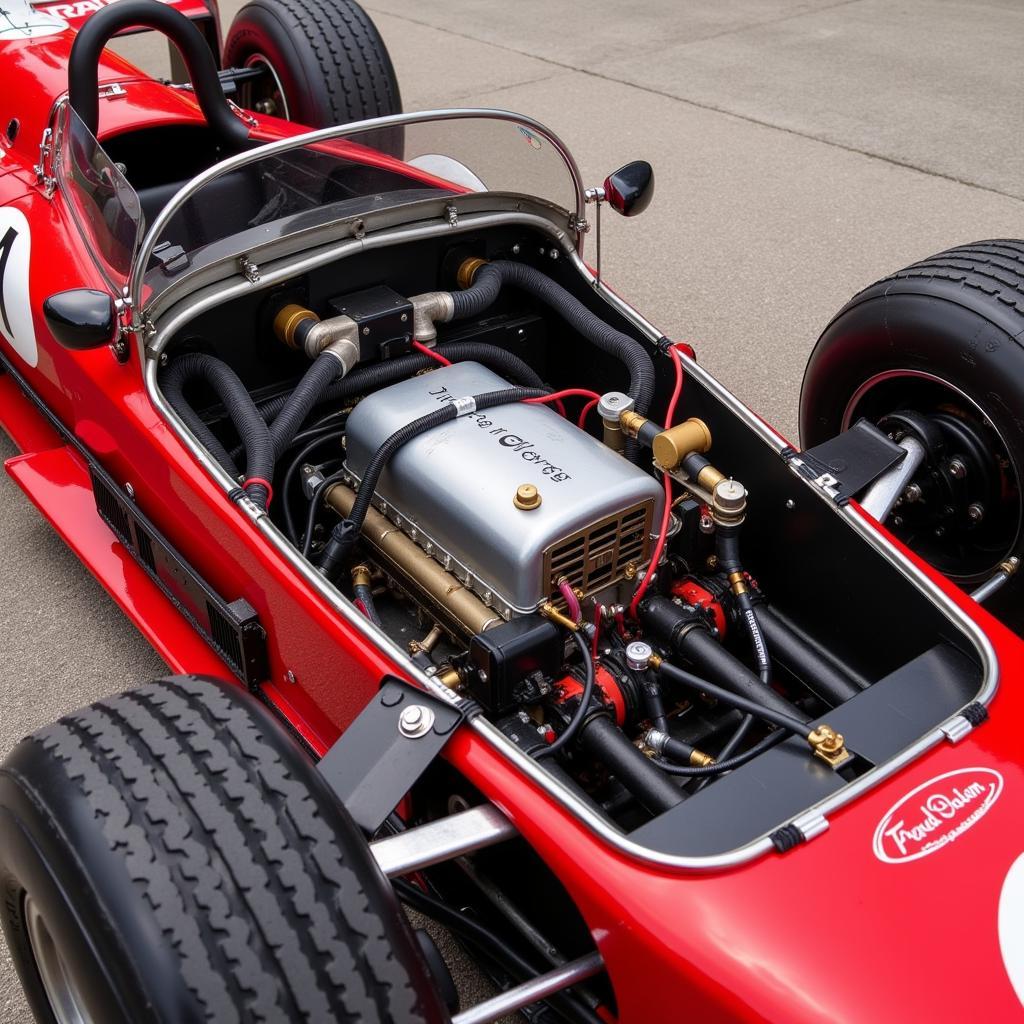Battery F1: The Power Behind Formula 1 Racing
October 14, 2024The roar of the engines, the lightning-fast pit stops, the strategic battles on the track – Formula 1 racing is a captivating spectacle of speed, technology, and human skill. But at the heart of these high-performance machines lies a critical component, often overlooked yet undeniably crucial: the Battery F1.
While the internal combustion engine might steal the limelight, the battery F1 plays a pivotal role in powering crucial systems, ensuring optimal performance, and enabling the remarkable efficiency that defines modern Formula 1 cars. This article delves into the intricate world of the battery F1, exploring its evolution, functionalities, and its significance in shaping the future of this adrenaline-fueled sport.
From Spark to System: The Evolution of the Battery F1
The battery’s journey in Formula 1 racing has been one of constant adaptation and technological advancement. Initially, its role was simple: to provide the initial spark to ignite the engine. These early batteries were bulky, heavy lead-acid batteries, similar to those found in everyday cars.
 Historic Formula 1 Car Engine
Historic Formula 1 Car Engine
However, as F1 technology progressed, the demands on the battery increased significantly. The introduction of complex energy recovery systems (ERS), such as KERS (Kinetic Energy Recovery System) and later MGU-H (Motor Generator Unit-Heat) and MGU-K (Motor Generator Unit-Kinetic), necessitated a shift towards lighter, more powerful, and energy-dense batteries.
The Modern Battery F1: A Powerhouse of Innovation
Today’s Formula 1 cars utilize sophisticated lithium-ion batteries, similar in principle to those powering electric vehicles. These batteries are remarkably compact and lightweight, yet they pack an impressive energy punch. They store energy generated by the ERS during braking and deceleration, which is then deployed to provide a power boost to the engine, improving acceleration and overall efficiency.
The battery F1 doesn’t just store and release energy; it acts as a dynamic energy management hub, constantly interacting with the car’s complex hybrid power unit. It plays a crucial role in balancing the power demands of various systems, ensuring optimal performance and fuel efficiency, a critical factor in the strategic complexities of F1 races.
Beyond Power: The Future of the Battery F1
As Formula 1 continues to push the boundaries of motorsport technology, the battery is set to play an even more crucial role in the future. With the sport striving for greater sustainability and reduced environmental impact, the development of even more efficient and powerful batteries is paramount.
 Formula 1 Engineer Working on Battery
Formula 1 Engineer Working on Battery
Furthermore, the knowledge gained from developing cutting-edge battery technology for F1 has significant implications for the automotive industry as a whole. These advancements trickle down to road cars, leading to the development of more efficient and powerful hybrid and electric vehicles.
Conclusion
The battery F1 might not be the most visible component on the track, but it is undeniably one of the most vital. It exemplifies the relentless pursuit of technological advancement that defines Formula 1 racing. As the sport continues to evolve, the battery’s importance will only grow, powering the next generation of F1 cars and influencing the future of automotive technology on and off the track.
FAQs
1. How much power does an F1 battery provide?
The current regulations limit the power boost from the battery to 120 kW, equivalent to approximately 160 horsepower.
2. How long does an F1 battery last?
F1 batteries are designed to last for the duration of a race weekend, typically covering around 300-400 kilometers.
3. What is the weight of an F1 battery?
Current F1 batteries weigh around 25 kilograms, a significant reduction compared to the heavy lead-acid batteries used in the past.
4. What are the safety measures for F1 batteries?
F1 batteries are housed in robust casings and are subject to stringent safety regulations to prevent fires and other hazards.
5. How does the F1 battery contribute to fuel efficiency?
By storing and releasing energy recovered during braking, the battery reduces the load on the engine, leading to significant fuel savings.
For any inquiries or assistance regarding Formula 1, including battery technology, please feel free to contact us.
Phone Number: 0915117117113
Email: [email protected]
Address: To 3 Kp Binh An, Phu Thuong, Viet Nam, Binh Phuoc 830000, Viet Nam.
Our dedicated customer support team is available 24/7 to assist you. We also have additional articles available on our website about other aspects of Formula 1 racing.